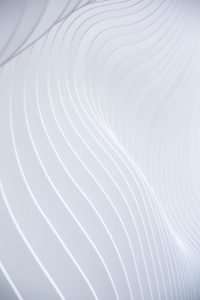Thank you for visiting my blog.
I have been a photographer for over 10 years and in that time, I have had many cameras which were purchased for me or I bought for myself. I have had great cameras, but also some devices that failed to deliver on their promise and were a waste of money.
You’re here because you want to know what camera to buy. You’re tired of sifting through online articles and want an expert opinion from someone who’s “been there and done that.” Well, you’ve come to the right place.
The best kind of camera to buy is the one that fits your needs the best. A digital single lens reflex camera (DSLR) is not always the best option, nor is it always the worst option. Each type of camera has its benefits and drawbacks, but there are things you can do to increase your chances of making the right choice when buying a new camera.
The first thing you’ll need to do is decide what your priorities are in a camera: Is image quality most important? Do you prefer manual controls? Are you shooting in low light conditions regularly? Is portability important?
The second thing you’ll need to do is find out what your budget is: how much are you willing to spend on
I’ve been a blogger for several years, and I’m asked often what kind of camera I use. It’s a tricky question, because there are so many variables. I do have a specific camera that I recommend, and I’ll get to it soon. But first let me explain how I got here and why things are complicated.
There are really only two kinds of cameras: film cameras and digital cameras. This is important to understand because it affects the way we think about them. Film cameras are 100% mechanical. You put the film in, you wind it up, and you click the button when you want to take a picture. And then you have to pay money to get the film developed. Digital cameras have become extremely complex over time in an attempt to make them more powerful, but at their core they are simple computers with a lens attached. They’re not terribly different from our phones at this point, just much better at taking pictures.
More powerful digital cameras rely on software processing (called firmware) to convert images from raw data into files that can be viewed on your computer or shared online, which is why they can do tricks like automatically picking out your best friends’ faces in a group photo or correcting lens distortion. The hardware itself is still pretty simple,
I give you a small summary of my experience with different camera systems. I don’t go into detail, but if you want to read more on certain subjects, I give links to my other articles where you will find more details.
1) Mirrorless cameras
The advantage of mirrorless cameras is that they are smaller and lighter than DSLRs. They usually have great image quality and decent high ISO performance. But they also suffer from shorter battery life, problems with overheating and no ability to change lenses (except in limited cases where you can switch to adaptor lenses or buy an expensive “system camera”). Some mirrorless cameras are equipped with electronic viewfinders (EVF), others with LCD screens. Either way, the viewfinder is not as good as a DSLR’s optical viewfinder and when shooting in bright sunlight it is hard to see what you are shooting. If you get an EVF camera, make sure it has a good resolution so that the image is sharp enough when magnified for critical focusing.
But if portability is your main concern, then a mirrorless camera might be just what you’re looking for. Canon makes three models: the EOS M, EOS M2 and EOS M3; Fuji makes 2 models: X-
Camera technology is improving at a very fast pace, and everyone seems to have a different opinion on what camera to buy. Is mirrorless better than DSLR, or the other way around? Should I get an APS-C or a full-frame camera? What about 4/3rds cameras?
Our goal is to guide you through this maze and provide you with unbiased information that will help you make the right decision. We hope that our reviews, tests and articles will help you on your journey to find the best digital camera!
First off, if you are not a photographer, this camera will do. It will produce great images and video, and it has all the automatic settings you need. If you are a bit more experienced, this camera will let you play around with the manual settings, and take more control over the image. The lens is fantastic for portraits. The camera is set up to shoot in RAW or JPEG depending on your preferences. It also shoots in Black and White mode (which actually makes sense). And if you don’t need a swivel screen or touch screen, this is definitely an advantage.
The 18-55mm lens that comes with it is amazing. It’s sharp at all focal lengths, and it’s fast (meaning it has a low aperture f/number) so it can let in a lot of light when you’re shooting indoors or at night.
The kit lens is probably the one thing that holds most people back from picking up this camera, because they think they need to spend a lot more money to get something better. But honestly, I’ve taken shots with this camera that rival what I would have gotten out of my DSLR with the same lens. The 18-55mm is that good!
If you already have a full-frame d
When it comes to picking your camera, there are so many choices. There are so many brands and models that you need to make a decision quickly. That’s why you can use some help.
We’ve done the research for you and created this list of the best cameras available now. In this list, you’ll find both consumer level cameras and professional ones. No matter how much you’re willing to spend, we have a great selection for you.
Trying to pick the right camera is hard work, but with the right information, it doesn’t have to be difficult. So if you’re trying to find the best camera for your needs, don’t worry – we’re here to make it easy!
When you buy a new camera for your art, it’s always a gamble whether that camera will be the right one.
On one side, you want to know what the other artists are using and which cameras they recommend. On the other hand, you don’t want to be talked into something that’s more expensive than you need just because other artists are recommending it.
What’s a photographer to do? Here is a little guide that should help in your search for an affordable art camera.


